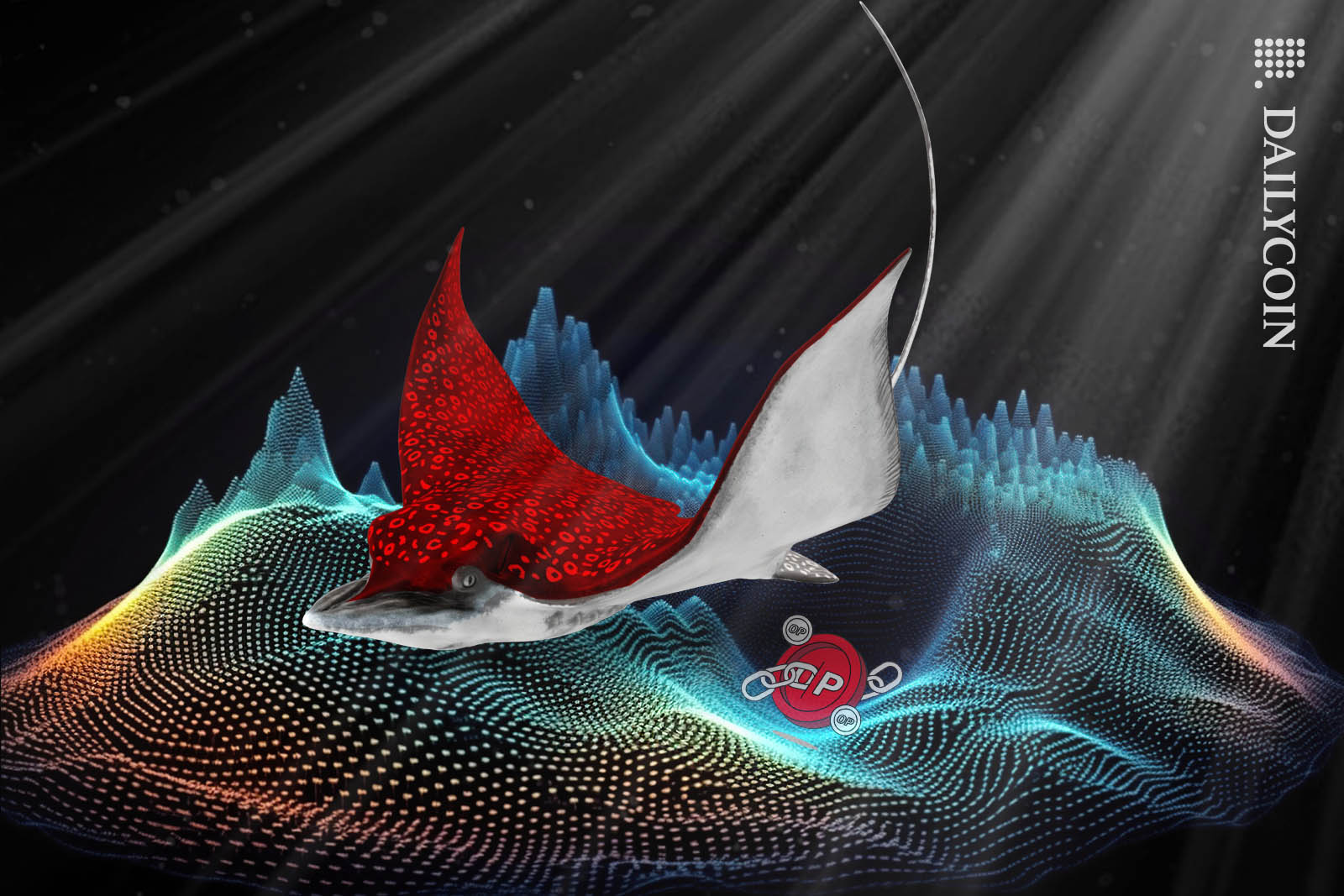
- Manta has announced that it would be transitioning from an optimistic rollup to a zkEVM with Polygon CDK.
- The move comes barely weeks after the project launched with the OP Stack.
- Manta’s planned switch may signal the start of a new trend.
Polygon‘s battle with OP Labs to become the preferred Ethereum Layer-2 technological stack is heating up as projects begin to jump ship.
On Monday, October 16, Manta Network, a project dedicated to making it easier for developers to ship zero-knowledge-powered decentralized applications (DApps), announced that it was abandoning the OP Stack for Polygon’s Chain Development Kit (CDK). Manta’s biggest suggested reason for the switch is improved user experience.
Is this the start of a new trend?
Better User Experience
In an open letter to the community on Monday, October 16, Manta co-founder Victor Ji asserted that the planned shift to the Polygon ecosystem with the CDK was borne out of a desire to offer a better user experience regarding withdrawal settlement time.
Sponsored
"OP Stack's longer challenge period will affect the user experience in the long term. This is why the plan to transition to zkEVM was born," Ji wrote.
As highlighted in a Manta statement, unlike Optimistic rollups, which take days to settle withdrawals on the Ethereum mainnet, zkEVM‘s built on Polygon only take minutes or seconds—this vast time disparity results from the different proofing systems employed by both solutions. While Optimistic rollups utilize fraud proofs that rely on socioeconomic incentives, Polygon’s ZK proving system depends on mathematics.
Other reasons cited by Manta for the planned transition include Polygon’s “modular and sovereign framework,” which allows for greater customization. Manta also disclosed that it intended to leverage the shared liquidity the Polygon ecosystem offers through trustless ZK bridges.
Sponsored
Manta’s decision to transition to a zkEVM Ethereum Layer-2 network comes barely a month after the project launched on the OP Stack and may signal the start of a new trend.
More to Come?
Responding to Manta’s announcement, Polygon Labs CEO Marc Boiron hinted that more shocking moves to the Polygon ecosystem are in the pipeline.
“While Manta may be a nice surprise, still more names that’ll shock you in the next couple months,” Boiron wrote.
As highlighted by the Polygon Labs chief, Manta joins a list of 12 projects that have announced a move to the Polygon ecosystem in recent months. The list includes Immutable zkEVM, Astar zkEVM, Canto, and Dogechain.
Polygon Labs has never avoided arguing that its ZK technology is better than OP Labs’ Optimistic solution. These arguments have only intensified with the launch of the CDK. In September 2023, Polygon Labs Executive Chairman Sandeep Nailwal made these arguments to convince Celo to transition to an Ethereum Layer-2 solution with the CDK instead of OP Labs’ OP Stack.
On the Flipside
- Manta’s transition to a zkEVM is expected to take about six months.
- zkSync developers Matter Labs are also strong contenders in the race to dominate the Ethereum Layer-2 tech stack.
Why This Matters
Manta’s decision to transition to the Polygon ecosystem represents a blow to Optimism’s multichain plans and a nod to Polygon’s ZK technology.
Read this to learn more about the battle for dominance between Polygon Labs and OP Labs:
Polygon Bids Against OP for Celo’s Ethereum L2 Transition
Joseph Bankman has found himself in the crossfire in his son’s trial. Find out more:
SBF’s Dad in Crossfire as Defense Tries to Blame Ex-Lawyers

